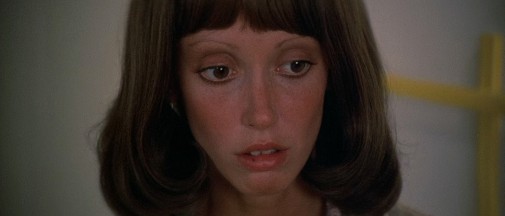
The Almost There series' temporary fixation on Cannes-winning performances continues with the incomparable Shelley Duvall. In 1977, when her sixth collaboration with director Robert Altman premiered at the Cannes Film Festival, Duvall took home the much-coveted Best Actress prize from a jury presided by Roberto Rossellini. The picture that earned such golden plaudits was 3 Women, a Bergman-esque exploration of juxtaposed and deconstructed identity that's also one of the best American films of its decade…
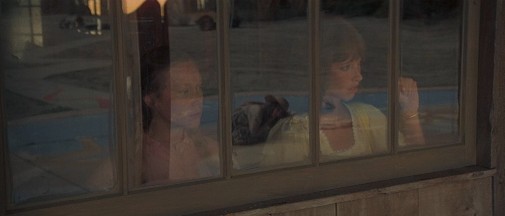
3 Women, the middle sister of Persona and Mulholland Drive, starts in a rehabilitation clinic in Palm Springs, California. Pinky Rose is a young woman searching for her first job after moving away from her family in Texas. Perhaps because they share a home state and, we later find out, a first name, Pinky tries to befriend her coworker Millie Lammoreaux. Her insistence on the relationship becomes especially strong when she becomes Millie's roommate, gradually eliciting the other woman's irritation. While the older woman initially shows her way of life to the younger colleague, the other's childlike behavior starts to grate. One night, Pinky has an accident, maybe a suicide attempt, and ends up in the hospital. Briefly comatose, she wakes up with apparent amnesia and, as the days pass, the barrier separating the roommates' identities starts to become so porous as to be immaterial.
The film, supposedly birthed from one of the director's dreams, feels imminently oneiric as is appropriate. While much of that quality stems from its inarticulate script and the tuneless aggression of Gerald Bussey's score, the actor's work is at the center of 3 Women. Such is the case with most of Altman's films, but instead of exemplifying the controlled chaos of the director's more collective portraits, 3 Women is a two-pronged character study. It's a mindfuck of a movie, microscopically obsessed with how its actresses embody their roles, how they engage with the world, the camera, each other, and themselves.
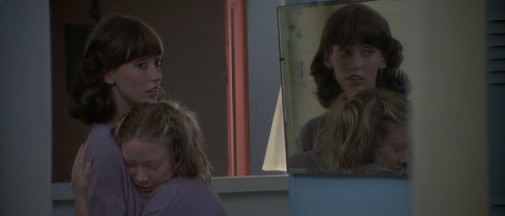
In the role of Millie, Duvall puts to good use her unique screen presence, her dollish face, and gangly physicality. From configuring her face into a caricature of self-delusion to shape-shifting her posture, Duvall's performance is as besotting as it is resourceful. Not to be too effusive, but there has never been another actress quite like Shelley Duvall. Saucer-eyed and blessed with a string bean stature, she was so removed from traditional conventions of beauty and acting that her figure becomes a magnet for the audience's eyes. Even before she does anything, we can understand, at a visceral level, why both Spacek's Pinky and Altman's camera become fixated on Duvall's spacey weirdo.
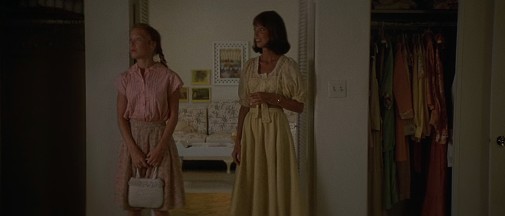
When not handling patients, and sometimes even then, Millie talks and talks but rarely seems to leave space for her companion's responses. Her eyes are always unfocused, distracted, and entirely unconcerned with registering how the endless chatter is received. One supposes this aggressive torrent of conversational nonsense would produce a friendly façadet. Instead, Duvall's Millie is alienating, both to the people that surround her and to us, the audience. No wonder she's so consistently belittled by those who turn a deaf ear to her consumerist monologues about kitschy cheese spreads and inexistent suitors.
Despite this, neither actress nor character seem much abated by outside judgment. In contrast to expectations, Duvall's Millie moves through life with confidence and an air of superiority. When annoyed, the woman's always ready to nag at Pinky, to criticize and rebuff. Furthermore, she's abrasive when fed up, disappointment flaring off of her in fractious ways. It's pretty fascinating watching Duvall's Millie drop her pleasantries and become consumed by frustration against her new roommate. That is until their power balance is inverted. The moment of change comes with the grief over Pinky's hospitalization. The pure emotion is so dissonant in Duvall's symphony of awkwardness that one can't help but be startled.
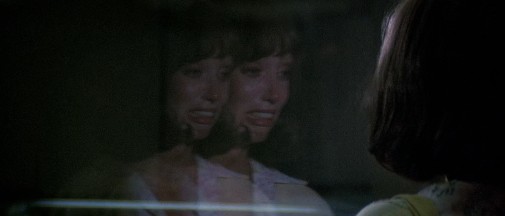
The crescendo of adolescent irritation the actress had been building up until then crumbles, her eyes feeling lost, not out of social ineptitude but a strident sense of guilt. Millie's annoyance towards the younger girl snaps in two when Pinky's life is in jeopardy, compounded by the shame for erstwhile hostility. And then, when the dormant woman wakes up, the world is thrown upside down. Millie now assumes the role of the meek victim to Pinky's provocation. Instead of standing high as a figure of gushing admiration, Millie is reduced to a wallflower, watching agog as her personality is purloined.
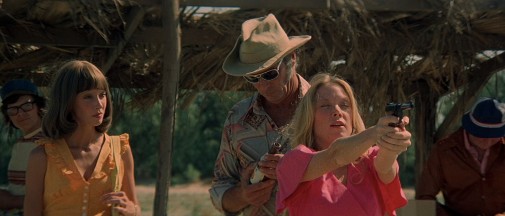
When the two women's identities start to become enmeshed, one would expect the actors to go along with it as continuations of their film's taste for disorientation. Spacek certainly does, but Duvall starts behaving as a conduit for the audience. She is now a spectator in her own life, helplessly seeing her sense of self slip between her fingers. In retrospect, it's impressive how far Duvall goes from an alienating presence into an avatar of the spectator. In this second act, she organically reacts to the violence the film is perpetrating against Millie. It's not just that these two women are becoming undistinguishable, for the process is one of simultaneous merging and splintering. In other words, it hurts.
Maybe my favorite passage of this fascinating performance is Millie's blank reaction to Pinky's jovial musings about having been raped while in a coma. It's as if we're watching both character and actress trying to find a strategy to react to the information. Like Garbo at the end of Queen Christina, there's an insoluble undefinition to Duvall's curious expression. We can find a galaxy of meaning in there, compassionate heartbreak holding hands with an ugly stab of contempt, maybe jealousy. The possibilities are too many to count, and some of them too horrifying to consider. For all her pleasant kookiness and fragility, there's a bite to Duvall's Millie. Notice that her last gesture before the epilogue is to slap Pinky while covered in someone else's blood - a vision straight out of some long-lost scary movie.
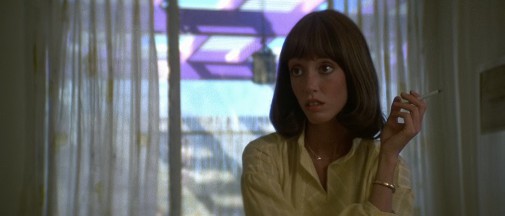
Reportedly, Robert Altman gave Duvall great freedom in her creation of Millie Lammoreaux. The character's sunny aesthetic, mannerisms, even her on-screen diet were either the actress' idea or the product of collective improvisation. Maybe some of the disconnection the film unspools out of Millie can be traced to this process. By giving that much autonomy to his leading lady, the director allowed her to exist on a different plane from the rest of the movie, floating through 3 Women like a disengaged ghost that we can never grasp but are drawn to nonetheless. Seeing reality through the prism of Duvall's mutable Millie, something as odd as the film's famously inscrutable finale starts making sense.
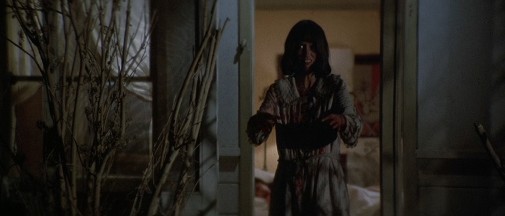
After its Cannes premiere, 3 Women received generally positive reviews despite being a commercial disappointment. The critical love for the picture manifested in accolades for its actresses. Shelley Duvall was nominated by the New York Film Critics Circle and the National Society of Film Critics, winning the Best Actress prize from the Los Angeles Film Critics Association. In terms of industry honors, she was also nominated for the BAFTA. Still, AMPAS ignored her and the rest of Altman's masterpiece. The Best Actress nominees at the 50th Academy Awards were Anne Bancroft in The Turning Point, Jane Fonda in Julia, Diane Keaton in Annie Hall, Shirley MacLaine in The Turning Point, and Marsha Mason in The Goodbye Girl. Keaton won the Oscar, and, precursor-wise, MacLaine stands out as the likely fifth-placer. Despite being a critical darling during her tenure as Robert Altman's muse, Shelley Duvall was never nominated for an Oscar, nor has she received any honorary trophy.
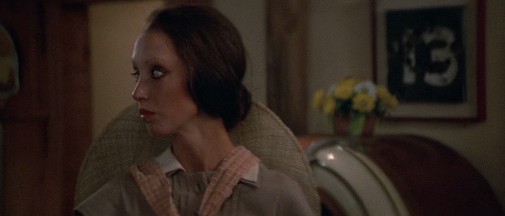
3 Women is available to rent on several services, including Youtube, Amazon, and Google Play.